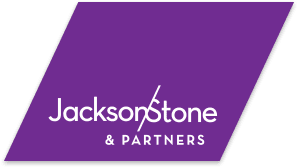Does your company have an ethical board?
All over the world, business ethics are coming under scrutiny. In Australia, the Royal Commission has uncovered serious misconduct in the finance industry, resulting in many dismissals and a great deal of public ill will. Meanwhile closer to home, key players in New Zealand's fashion industry were criticised in 2018 for their unethical behaviour. World's "Made in New Zealand' clothing, for example, was actually found to be produced in China and Bangladesh – causing a massive lash back from consumers and media alike.
Unsurprisingly, corporate boards are central to the business ethics debate. After all, they are ultimately responsible for the behaviour and culture of their organisations. But clearly the ethics of many corporate boards are falling short. So how can you tell if your organisation really does have an ethical board?
Banks may face criminal charges after final royal commission report https://t.co/RlZXrm1oYA
— Guardian Australia (@GuardianAus) February 4, 2019
The bare minimum: Codes of conduct, ethics committees and Chief Ethics Officers
Creating an ethics committee and appointing a Chief Ethics Officer are central to ethical corporate behaviour. These roles are specifically designed for ensuring businesses meet their compliance and moral obligations – without them, ethics may be relegated to an afterthought. Another basic sign of an ethical board is that they promote clear codes of conduct and compliance programmes that are specific to their business and focus on values (there is a difference between what is legal and what is ethical, and boards must understand this).
However, just because your board has a Chief Ethics Officer and a code of conduct doesn't necessarily make it ethical – rather, businesses need to start seeing these as basic requirements. True ethics must go deeper.
Is your board proactive?
All too often, businesses create the above positions and see it as a job well done. But this just means a board appears ethical. It may still not be pursuing the initiatives it needs to. The most obvious sign that your board is genuinely committed to creating an ethical business is that it is proactive. Instead of waiting for others to raise issues and make complaints, your board members actively pursue information about the practices in their company. They ask the probing questions and request ethics reports.
These reports should be on a broad range of KPIs. Things like customer and employee complaints, absenteeism and workplace accidents are all potential areas to indicate ethical behaviour, but specifics will depend on your company.
WORLD 'Made in NZ' scandal 'just the tip of the iceberg' https://t.co/Rau2rcx3VH pic.twitter.com/7ESPP3ZDsU
— nzherald (@nzherald) May 7, 2018
What does your board reward?
One issue that came up during the Royal Commission in Australia was how employees are rewarded. When bonuses revolve solely around high sales, this often leads to unethical behaviour, because the messaging indicates that sales and income are what the company cares most about. However, businesses that reward for ethical behaviour show that they value things beyond financial interests. This can easily start at the top – does your board reward CEOs for corporate social responsibility efforts, for example? Ultimately, it's the board of directors that decides what behaviour it wants to incentivise, and this is the easiest way to encourage company-wide investment into ethical practices.
How are whistleblowers treated?
Finally, another indicator of ethical directors is that they encourage people to speak up. Whistleblowers have very little legal protection unless a company provides it. Boards need to make it clear that they will take complaints seriously and will not penalise those that do come forward. Boards need to have clear documentation around their treatment of whistleblowers, and lead by example when complaints are made.
Does your company need a change at the top? The executive recruitment specialists at JacksonStone & Partners can help. We perform extensive background checks and can make sure you're choosing people that can make a positive difference at your organisation. Contact us today for more information.



